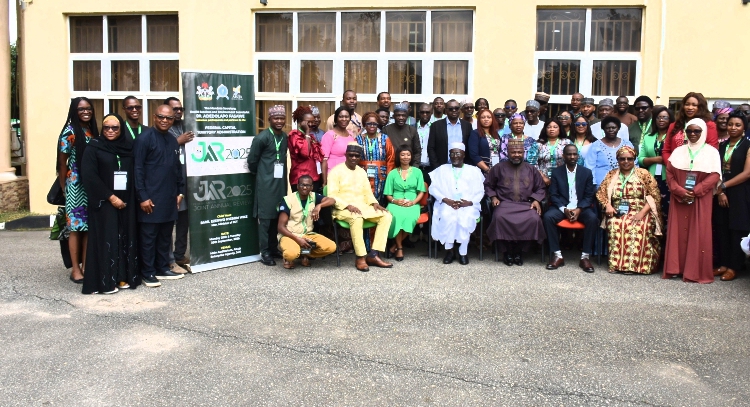
Dele Anofi and Haggai Daniel, Abuja
The Federal Capital Territory Administration (FCTA) has reaffirmed its commitment to strengthening healthcare delivery across the territory through the creation of dedicated budget lines for core health programmes, among other key initiatives.
As part of its renewed health agenda, the FCTA announced plans to fully implement the Primary Health Care Under One Roof (PHCUOR) policy and fast-track the passage of the FCT Health Insurance (FHIS) and Public Health Emergency and Risk Management Agency (PHERMRA) Bills.
The administration also disclosed plans to establish an Infectious Disease Hospital, revitalize the FCT Molecular Laboratory, and advocate for a minimum 15 percent budgetary allocation to health in line with the Abuja Declaration.
These measures, the FCTA said, are designed to enhance access to quality healthcare, strengthen the health system’s resilience, and ensure the FCT remains at the forefront of effective public health management in Nigeria.
These were outlined in a communiqué issued at the end of the two-day 2025 Health Sector Joint Annual Review and Performance Dialogue, presided over by the Mandate Secretary of the Health Services and Environment Secretariat (HSES), Dr. Adedolapo Fasawe, which convened senior government officials, development partners, civil society representatives, traditional leaders, and health experts to assess progress and challenges across key health pillars under the National Health Sector Renewal Investment Initiative (NHSRII).
The communiqué, endorsed by representatives of the Mandate Secretary and the Ona of Abaji, Dr. Alh. Baba Adamu Yunusa, who was represented by Wodi Nathaniel the Sarkin Jinya Abaji, reaffirming collective commitment to equitable, accessible, and resilient healthcare for FCT residents, was jointly signed by Dr. Ahmadu Abubakar, Acting Director-General of the Hospital Management Board, on behalf of the Mandate Secretary, and Dr. Dan Gadzama, Acting Director of Public Health, on behalf of the Permanent Secretary, Health Services and Environment Secretariat.
The joint review assessed the FCT’s performance in maternal and child health, immunizations, non-communicable diseases, infectious disease control, health financing, and human resources for health.
Participants identified critical challenges including funding constraints, infrastructure gaps, weak data systems, and shortages of qualified health workers.
Presentations during the dialogue revealed improvements in maternal and child health outcomes, expanded immunization coverage, reduced HIV incidence, and strengthened malaria response.
The FCT also recorded progress in health insurance enrolment, established a Health Workforce Registry, and developed a five-year Human Resource Recruitment Plan (2025–2029).
However, participants stressed the need for stronger funding mechanisms and policy alignment to sustain these gains.
One major recommendation was the creation of a dedicated Nutrition Department with an independent budget line to accelerate maternal and child nutrition programmes.
On immunization, recurring challenges such as funding shortfalls, insecurity in rural and nomadic areas, and weak demand generation due to vaccine hesitancy.
Stakeholders emphasised the need for greater community engagement, especially in identifying and reaching zero-dose children, and for institutionalized supportive supervision to improve coverage.
The Public Health Department highlighted the rising burden of non-communicable diseases (NCDs) while calling for more partner involvement to address limited funding, short pilot projects, and high staff attrition.
Similarly, funding delays and infrastructure weaknesses continue to affect HIV, tuberculosis, and malaria control were reported while stronger collaboration with the private sector was advocated.
The presentation on primary health care delivery by the FCT Primary Health Care Board identified inadequate staffing and lack of 24-hour operational facilities as major constraints.
The upgrading of primary health centres and the recruitment of additional personnel to ensure round-the-clock maternal and child healthcare services were recommended
The discussions on healthcare financing underscored the slow implementation of health insurance coverage in the FCT, largely due to the pending FHIS Bill.
Stakeholders called for the swift passage of the bill to expand access to mandatory health insurance and ensure equitable service delivery.
Human resources for health also received strong attention, with the HR Department noting skill imbalances and poor working conditions across area councils.
The creation of a national workforce database and improved incentives to retain skilled personnel were proposed.
On pandemic preparedness, Dr. Lukman Lawal, the FCT State Epidemiologist, outlined multi-level challenges including vaccine hesitancy, weak surveillance networks, and poor data quality.
He called for integrating private hospitals into disease surveillance systems, enhancing logistics, and ensuring timely release of operational funds, “Timely operationalization of funding mechanisms is vital to effective outbreak response,” he said.
At the end of the dialogue, participants agreed that sustained progress in the FCT health sector depends on increased investment, inter-agency coordination, improved data reporting, and strengthened collaboration between public and private actors.




